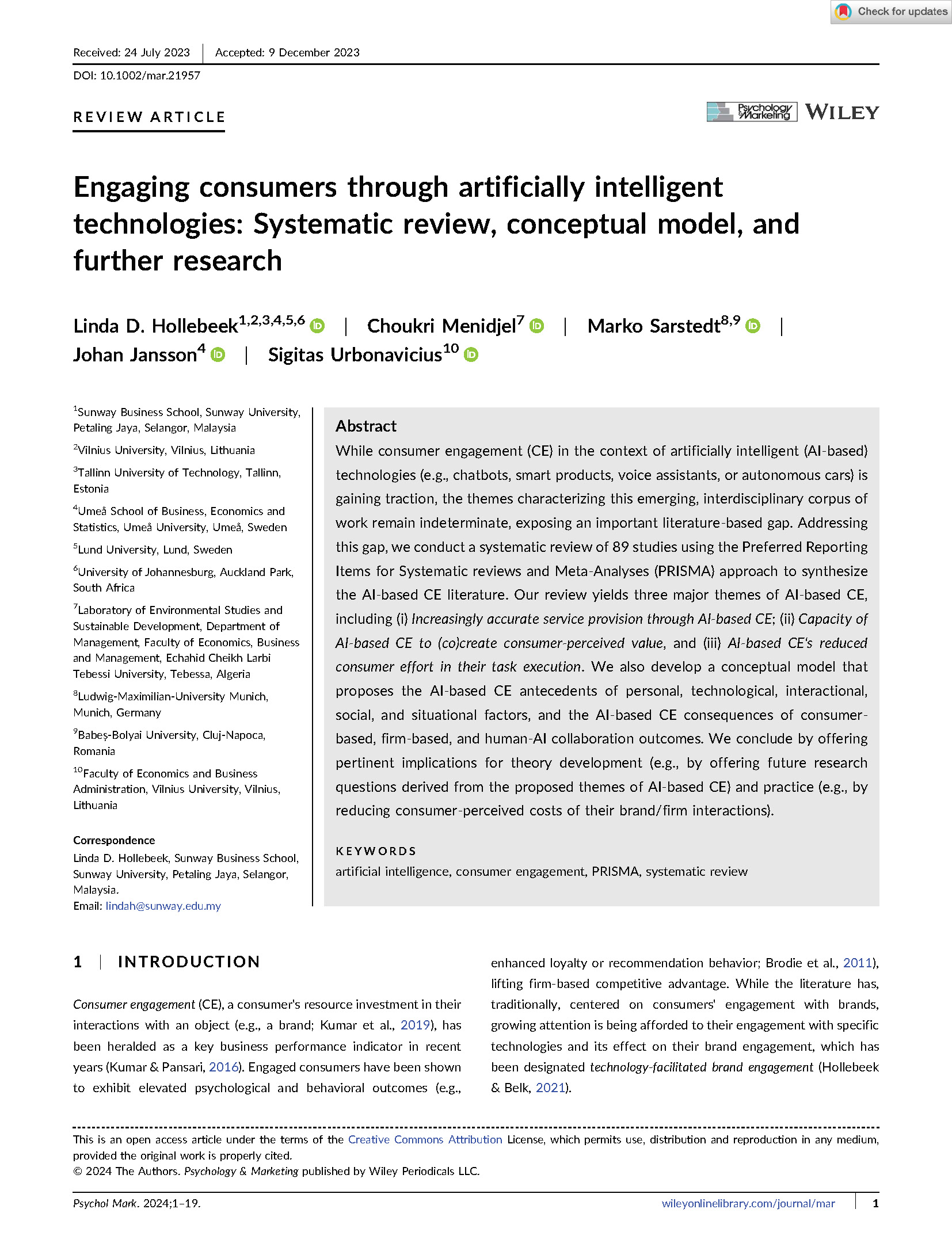|
|
|
Hollebeek, L.D., Menidjel, C., Sarstedt, M., Jansson, J. & Urbonavicius, S. (2024) Psychology & Marketing [Core Economics, Q1]
Autor:
Cristina Alexandrina Stefanescu
Publicat:
11 Ianuarie 2024
Hollebeek, L.D., Menidjel, C., Sarstedt, M., Jansson, J. & Urbonavicius, S. (2024) Engaging consumers through artificially intelligent technologies: Systematic review, conceptual model, and further research. Psychology & Marketing, 41(4), 880-898.
DOI: https://doi.org/10.1002/mar.21957
✓ Publisher: Wiley
✓ Web of Science Core Collection: Social Sciences Citation Index
✓ Categories: Business; Psychology, Applied
✓ Article Influence Score (AIS): 1.702 (2023) / Q1 in all categories
Abstract: While consumer engagement (CE) in the context of artificially intelligent (AI-based) technologies (e.g., chatbots, smart products, voice assistants, or autonomous cars) is gaining traction, the themes characterizing this emerging, interdisciplinary corpus of work remain indeterminate, exposing an important literature-based gap. Addressing this gap, we conduct a systematic review of 89 studies using the Preferred Reporting Items for Systematic reviews and meta-Analyses (PRISMA) approach to synthesize the AI-based CE literature. Our review yields three major themes of AI-based CE, including (i) Increasingly accurate service provision through AI-based CE; (ii) Capacity of AI-based CE to (co)create consumer-perceived value, and (iii) AI-based CE's reduced consumer effort in their task execution. We also develop a conceptual model that proposes the AI-based CE antecedents of personal, technological, interactional, social, and situational factors, and the AI-based CE consequences of consumer-based, firm-based, and human-AI collaboration outcomes. We conclude by offering pertinent implications for theory development (e.g., by offering future research questions derived from the proposed themes of AI-based CE) and practice (e.g., by reducing consumer-perceived costs of their brand/firm interactions).

inapoi la stiri  vezi evenimentele
vezi evenimentele  home
home 
|